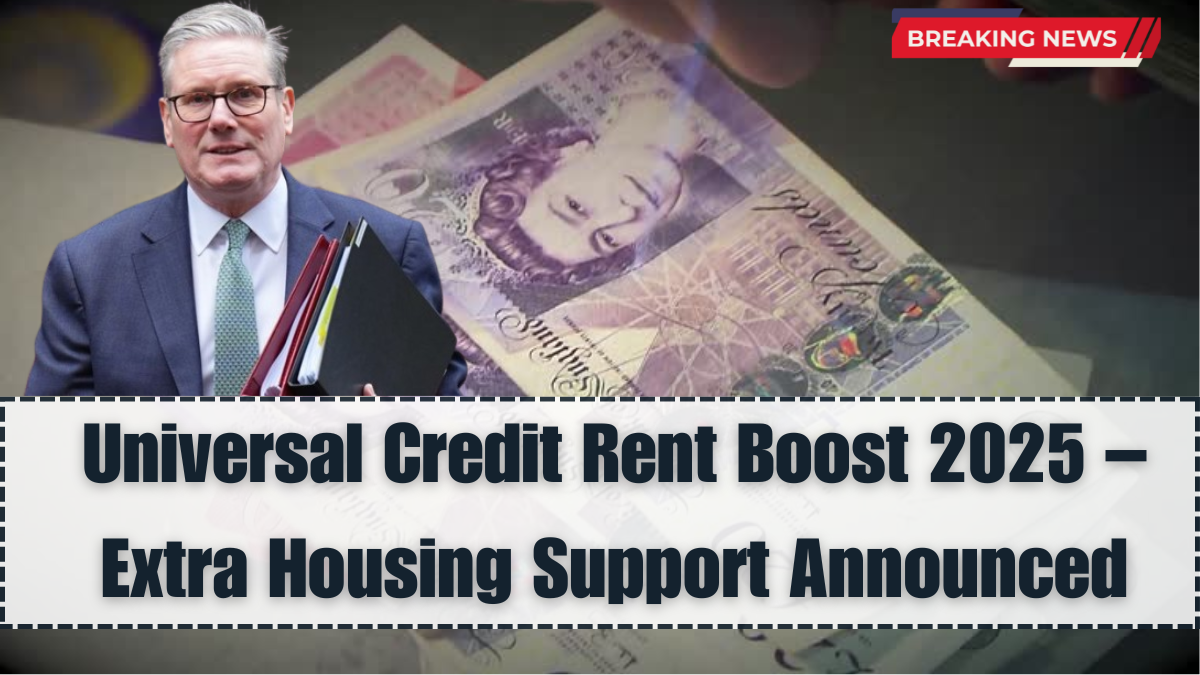The UK Universal Credit Rent Boost 2025 is now active and delivering extra housing payments to thousands of tenants across the United Kingdom. Rolled out by the Department for Work and Pensions (DWP), this initiative is aimed at helping low-income individuals and families cope with rising rental costs amid inflation and housing demand pressures.
The scheme increases the monthly housing element of Universal Credit to ensure that more tenants can meet their rent without falling into arrears or risking eviction. This boost is part of the broader effort to combat homelessness and housing insecurity in the UK.

What Is the UK Universal Credit Rent Boost 2025?
The UK Universal Credit Rent Boost 2025 is a rent-focused adjustment in the Universal Credit housing component. It is designed to:
-
Raise the Local Housing Allowance (LHA) rates
-
Provide £150 to £300 extra per month for eligible claimants
-
Support private and social renters alike
-
Ensure full or partial rent coverage depending on location and household size
-
Offer automatic inclusion for many current Universal Credit claimants
This boost has come as a relief to tenants in high-rent areas who were previously under severe financial pressure.
Who Is Eligible for the Rent Boost?
To receive the UK Universal Credit Rent Boost 2025, you must:
-
Already be receiving Universal Credit with a housing element
-
Be renting either from a private landlord or a housing association
-
Meet the updated LHA threshold based on postcode and family size
-
Not be claiming full rent through other schemes (like discretionary housing payments)
-
Have up-to-date tenancy agreements and proof of rent
Here’s a quick table to check estimated rent boost based on region:
| Region | Monthly Rent Boost (Approx.) |
|---|---|
| Greater London | £300 |
| West Midlands | £220 |
| North East | £180 |
| Scotland | £200 |
| Wales | £210 |
| Northern Ireland | £190 |
Exact amounts vary based on property size and local rent caps.
How to Access the Rent Boost
The UK Universal Credit Rent Boost 2025 does not require a separate application in most cases. Here’s what tenants should do:
-
Check your UC journal for updated housing element
-
Ensure your rental agreement and address are correct
-
Upload latest rent receipts or landlord letter, if prompted
-
Wait for automatic update from DWP based on your area’s LHA rate
-
If not updated, contact your local Jobcentre or UC helpline
The rent boost will be added directly to your monthly UC payment.
Impact of the Universal Credit Rent Boost
The UK Universal Credit Rent Boost 2025 is already making a tangible difference by:
-
Preventing eviction risks among low-income tenants
-
Reducing reliance on food banks and crisis grants
-
Allowing tenants to remain in their homes in urban and high-demand areas
-
Supporting disabled individuals and single-parent families with better housing security
-
Reducing homelessness in cities like London, Manchester, Birmingham, and Glasgow
The program is part of DWP’s long-term housing affordability framework.
FAQs
What is the UK Universal Credit Rent Boost 2025?
The UK Universal Credit Rent Boost 2025 is a new measure by DWP that increases the housing portion of Universal Credit to help tenants afford rising rents.
Do I need to apply for this rent boost?
In most cases, no. The boost is automatically applied if you’re already receiving the housing element of Universal Credit.
How much more money will I get?
Eligible claimants will receive between £150 and £300 extra per month, depending on their region, rent amount, and household size.
Does this apply to private renters?
Yes, the UK Universal Credit Rent Boost 2025 supports both private tenants and housing association renters, provided you meet the eligibility criteria.
What if I don’t see the increase in my UC payment?
Check your UC journal or contact your local Jobcentre. You may need to update your rent details or re-upload your tenancy agreement.
Click here to know more.
